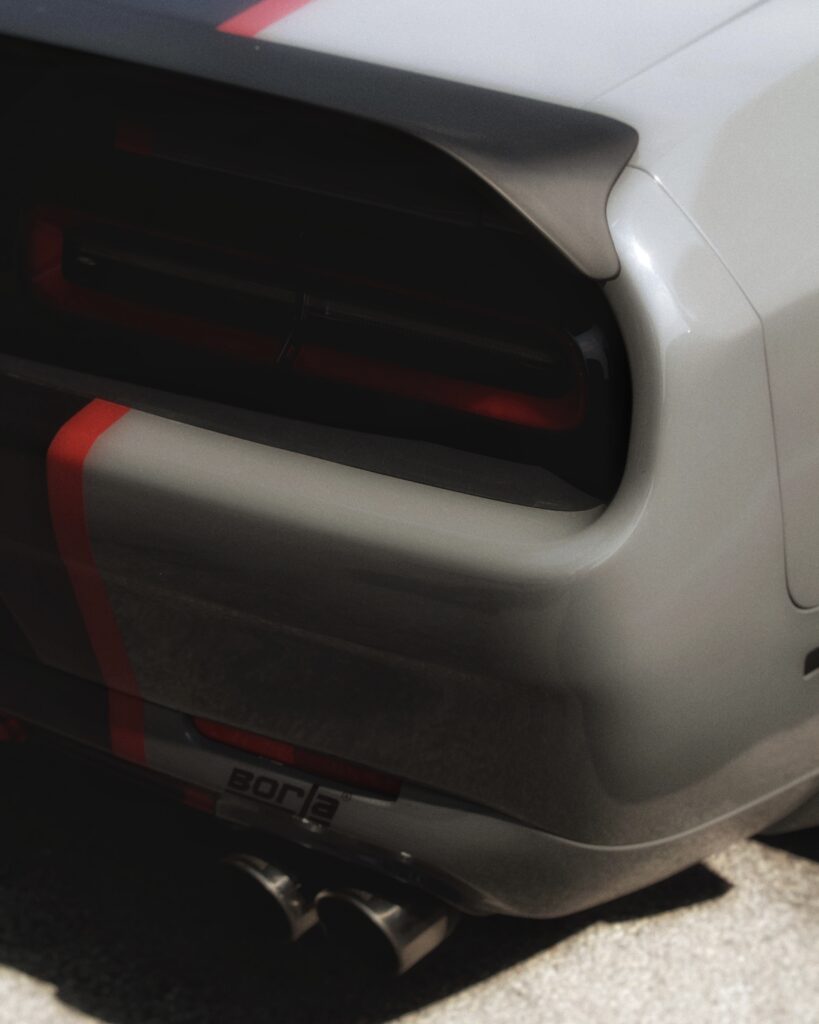Driving with a leaking exhaust system can be a cause for concern, but you might be wondering whether it’s actually illegal. In this article, we will explore the implications of driving with a leaking exhaust system and shed light on whether it is against the law or not. By examining the potential risks and consequences, we aim to provide you with a clearer understanding of the situation and help you make informed decisions regarding your vehicle’s safety. So let’s get started and find out if you can hit the road with a leaking exhaust or if it’s time to pay a visit to the mechanic!

Understanding Car Exhaust Systems
Definition of a Car Exhaust System
A car exhaust system is a crucial component of a vehicle that is responsible for removing and filtering the waste gases produced during the combustion process. It consists of multiple parts that work together to channel the exhaust gases away from the engine and release them safely into the atmosphere.
Main Components of a Car Exhaust System
The main components of a car exhaust system include:
- Exhaust Manifold: This is the first component that collects the gases from each cylinder and channels them into a single pipe.
- Catalytic Converter: Its primary function is to reduce the harmful emissions by converting them into less harmful substances through chemical reactions.
- Muffler: The muffler’s purpose is to reduce the noise produced by the engine during the exhaust process.
- Tailpipe: The tailpipe is the final part of the exhaust system, where the gases exit the vehicle and are released into the atmosphere.
Function of a Car Exhaust System
The function of a car exhaust system goes beyond just removing waste gases. It also plays a vital role in maintaining engine performance, fuel efficiency, and overall vehicle safety. The exhaust system helps regulate engine temperature by venting hot gases away from the engine components, preventing overheating. Additionally, it ensures the proper flow of gases, optimizing engine power and torque. Furthermore, the catalytic converter in the exhaust system helps reduce harmful emissions, contributing to a cleaner environment.
Causes of Exhaust System Leakage
Excessive Rust and Corrosion
One of the leading causes of exhaust system leakage is excessive rust and corrosion. Over time, exposure to moisture, road salt, and other environmental factors can cause the exhaust system components to deteriorate. Rust weakens the metal, leading to cracks and holes in the exhaust pipes, muffler, or other parts of the system.
Mechanical Damage
Accidents or collisions can also result in mechanical damage to the exhaust system. If a vehicle’s underside sustains impact in an accident, it can dent or break the exhaust pipes, causing leaks. Even a minor impact can disrupt the alignment of the components, leading to exhaust system leaks.
Poor Installation or Maintenance
Improper installation or maintenance can contribute to exhaust system leakage. If the exhaust system fittings are not secured correctly, it can lead to gaps and leaks. Additionally, neglecting routine maintenance such as checking for loose or damaged parts can result in exhaust leaks over time.
Wear and Tear Over Time
As a vehicle ages, its exhaust system undergoes wear and tear. Continuous exposure to heat, pressure, and vibration can cause the exhaust system components to degrade. Over time, this can lead to cracks, holes, and other forms of leakage.
Identifying Symptoms of a Leaking Exhaust System
Noticeable Noise Changes
One of the most apparent signs of a leaking exhaust system is a change in the noise produced by the vehicle’s engine. If you notice an increase in the volume or a distinct change in the sound, particularly a louder, deeper, or sputtering noise, it is indicative of a potential exhaust leak. Such noise changes occur due to the escape of gases through the cracks or holes in the exhaust system.
Smell of Raw Gasoline
Another symptom of a leaking exhaust system is the smell of raw gasoline inside or around the vehicle. When there is a leak in the exhaust system, unburned fuel can escape and enter the vehicle’s cabin. This smell is not only unpleasant but also potentially dangerous. If you detect a strong odor of gasoline, it is essential to have your exhaust system inspected promptly.
Decreased Fuel Efficiency
A leaking exhaust system can negatively impact your vehicle’s fuel efficiency. When there are leaks in the exhaust pipes or other components, it disrupts the proper flow of gases and can lead to an inefficient combustion process. As a result, your vehicle may experience decreased fuel efficiency, requiring you to refuel more frequently.
Power or Performance Issues
Leaking exhaust systems can affect the overall performance of your vehicle. Due to the disruption in exhaust flow, the engine may struggle to generate the necessary power and torque, leading to decreased acceleration, reduced engine performance, and even hesitation or stalling. If you notice a significant decrease in the vehicle’s power or performance, it is crucial to have your exhaust system examined.
Hazards of Driving with a Leaking Exhaust System
Potential Health Risks
Driving with a leaking exhaust system can pose significant health risks. The gases released through the exhaust contain various pollutants, including carbon monoxide (CO). Carbon monoxide is a colorless and odorless gas that is highly toxic when inhaled in excessive amounts. Exposure to carbon monoxide can cause headaches, dizziness, nausea, and, in severe cases, even result in loss of consciousness or death.
Negative Environmental Impact
Leaking exhaust systems contribute to environmental pollution. The harmful gases emitted through an exhaust leak, such as carbon dioxide (CO2), nitrogen oxides (NOx), and hydrocarbons (HC), can contribute to air pollution and climate change. These pollutants have adverse effects on air quality, human health, and ecosystems.
Damage to the Vehicle
Continuing to drive with a leaking exhaust system can lead to further damage to your vehicle. The exhaust system is interconnected with other engine components, and a leak can disrupt their proper functioning. For example, if gases leak near sensitive sensors or electrical components, it can cause malfunctions or permanent damage.
Reduced Vehicle Performance
A leaking exhaust system can negatively impact your vehicle’s performance. The disruption in exhaust flow can cause back-pressure, preventing the engine from performing optimally. Reduced engine power, decreased fuel efficiency, and overall sluggish performance are common consequences of a leaking exhaust system. It is essential to address exhaust leaks promptly to ensure your vehicle operates at its best.

Legal Implications of Driving with Exhaust Leaks
Vehicle Emission Standards
Driving with a leaking exhaust system can place you in violation of vehicle emission standards. Many countries have regulations in place to control and limit the emissions produced by vehicles. These regulations are aimed at reducing air pollution and promoting cleaner and healthier environments. A leaking exhaust system can result in higher emissions, making your vehicle non-compliant with these standards.
Traffic Safety Regulations
Operating a vehicle with a leaking exhaust system can also violate traffic safety regulations. These regulations aim to ensure the safe operation of vehicles on the road for both the driver and other road users. Depending on the severity of the exhaust leak and the associated risks, Driving with a leaking exhaust system can be deemed unsafe and in violation of these regulations.
Legal Penalties for Non-Compliance
The legal penalties for driving with a leaking exhaust system vary depending on the jurisdiction and the specific circumstances. In many jurisdictions, driving a vehicle that does not comply with emission standards or fails a vehicle inspection is considered a traffic offense. The penalties can range from fines and points on your driver’s license to vehicle impoundment or even suspension of driving privileges. It is essential to familiarize yourself with the laws and regulations in your jurisdiction regarding exhaust system compliance to avoid legal consequences.
Understanding Vehicle Inspection Laws
Purpose of Vehicle Inspections
Vehicle inspections are systematic evaluations conducted to assess the safety, roadworthiness, and compliance of vehicles with specific regulations. The purpose of vehicle inspections is to ensure that vehicles on the road meet safety and environmental standards, protecting both the drivers and the general public. Inspections help identify and rectify any issues or deficiencies in vehicles, including exhaust system leaks.
Components Checked During a Vehicle Inspection
During a vehicle inspection, various components of the vehicle, including the exhaust system, are thoroughly checked. Trained inspectors check for leaks, damage, and any other issues that could affect the vehicle’s safety or compliance with regulations. Deficiencies in the exhaust system, such as leaks, excessive noise, or emissions beyond permissible limits, can result in a failed inspection.
Consequences of Failing a Vehicle Inspection
Failing a vehicle inspection can have significant consequences, depending on the jurisdiction and the severity of the issues identified. In many cases, vehicles that fail inspections are given a specified period to rectify the issues and undergo a re-inspection. Failure to address the deficiencies within the allotted time may result in fines, penalties, or legal actions. Additionally, vehicle registration renewal or transfer can be delayed or denied until the issues are resolved and the vehicle passes inspection.

Preventive Measures Against Exhaust Leaks
Regular Vehicle Maintenance
Regular vehicle maintenance is crucial in preventing exhaust system leaks. Following the manufacturer’s recommended maintenance schedule helps identify potential issues or signs of wear before they develop into major problems. Routine inspections, such as checking exhaust system fittings, inspecting for signs of rust or corrosion, and replacing worn-out components, can help maintain the integrity of the exhaust system.
Prompt Repairs
Addressing any issues or symptoms of an exhaust leak promptly is essential. Ignoring minor leaks or delaying repairs can lead to further damage and escalate repair costs. As soon as you notice any abnormal noise, smell, or decreased performance, it is advisable to have your vehicle inspected by a qualified technician who can identify and repair exhaust system leaks as necessary.
Using Quality Exhaust System Components
When replacing or repairing exhaust system components, it is important to choose high-quality parts. Using substandard or incompatible components can compromise the functionality and durability of the exhaust system, leading to increased likelihood of leaks. Consulting with a trusted mechanic or sourcing parts from reputable suppliers ensures that your vehicle’s exhaust system is equipped with components that meet the necessary standards.
Conclusion: The Importance of a Functional Exhaust System
In conclusion, understanding and maintaining a functional exhaust system is vital for safe and responsible driving. A leaking exhaust system can not only compromise the vehicle’s performance and fuel efficiency but also pose health risks, harm the environment, and potentially lead to legal consequences. Regular maintenance, prompt repairs, and compliance with vehicle inspection laws are essential for keeping your exhaust system in optimal condition. By prioritizing the health of your vehicle’s exhaust system, you contribute to a cleaner environment, safer roadways, and an overall enjoyable driving experience. Remember, responsible driving involves not just a keen focus on the road but also the well-being of your vehicle and its components.
